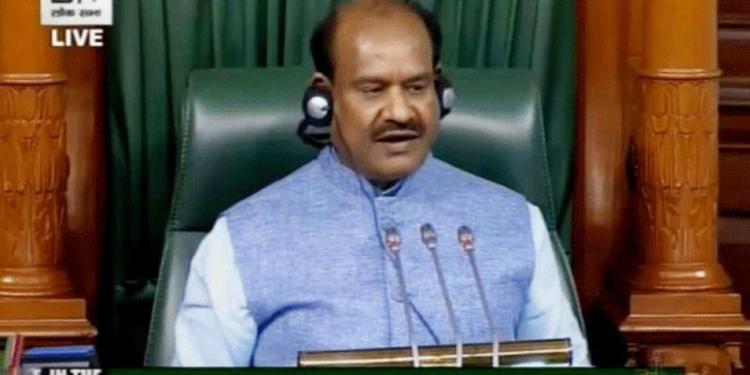With the adjournment of this Lok Sabha session, certain statistics have come out which highlight the productiveness of the session. Before adjourning the House sine die, Lok Sabha Speaker Om Birla on Tuesday said it was the most productive session since 1952.
Birla said, the first session of the 17th Lok Sabha, which began on June 17, was to conclude on July 26, but it was extended till August 7. The session had 37 sittings of total 280 hours, in which 36 bills were passed while 33 were introduced in the Lower House.
He also mentioned that the House sat for 75 hours late in the evening to transact the business. He said 1,086 issues were raised by members, which were mostly first-timers, during the Zero Hour. Out of the 265 first time members, 229 got chance to speak during the Zero Hour, while 42 out of 46 women MPs also spoke during the same period. Birla’s decision for late sittings was meant primarily to give MPs a chance to raise issues they felt were important.
This is unprecedented as first time MPs are rarely given a chance to speak. This was also acknowledged by RSP member N K Premachandran, who said that Om Birla is making efforts to accommodate everyone, especially first-time MPs, “without looking at party affiliations”.
Premachandran pointed out that in the past, some members in the did not get a chance to participate in the discussions even after two years. He stated, “Breaking that, almost all members were given a chance to speak— either in debates or during Zero Hour. He also gave a chance for the Opposition to speak- whether the matter is pursued by the government or not, the MPs got opportunity to place their views. That’s why the House ran smoothly.”
Speaker Om Birla received praises from both the sides in the parliament, from the current government as well as from the opposition. MPs from across parties agreed that he has successfully lowered the heat in a House by giving space to all MPs.
Adhir Ranjan Chowdhury, leader of Congress, lauded him for “listening to the Opposition.”Chowdhury also said he wants Birla to emerge as the best Speaker among the Commonwealth countries.
BJP MP Kirit Premjibhai Solanki said that the House runs “very positively and the Opposition also cooperates” primarily because of the Speaker’s role. “He started the practice of allowing as many MPs to speak during Zero Hour as is possibly — the House (often) got extended for that.”
Besides improving efficiency, Birla also made quite a few efforts to bring more decorum and discipline to the House. He regularly reminded that no MP can make comments or ask questions while seated, or without giving notice. He also urged ministers not to respond to questions that come without prior notice. Moreover, irrespective of the party affiliation, he also repeatedly warned members from the Treasury benches not to make personal comments on any MP or display unparliamentarily behavior.
Ever since he assumed the office of Lok Sabha speaker, he made certain significant changes in the functioning of the Lower House of Parliament and if this is any indication of how his tenure is going to be, it seems that Lok Sabha would no longer witness repeated interruptions by MPs and unnecessary adjournments.
As such, Birla ensured that the Lok Sabha doesn’t merely go through the motions, but actually holds fruitful discussions and substantially performs the functions which it is supposed to perform.
The decision to adjourn the House sine die came on a day when Lok Sabha passed the key legislations regarding the state of Jammu and Kashmir, which were the reorganisation bill and a resolution on Article 370. Thereafter, Parliamentary Affairs Minister Pralhad Joshi had requested Speaker Om Birla to adjourn the proceedings sine die as “99 per cent” of the government business has been completed.
The pace and efficiency of parliamentary matters has indeed been top notch in this session. The citizens are enthusiastic to see the elected leaders so productive which is directly proportional to the development of the nation.

























